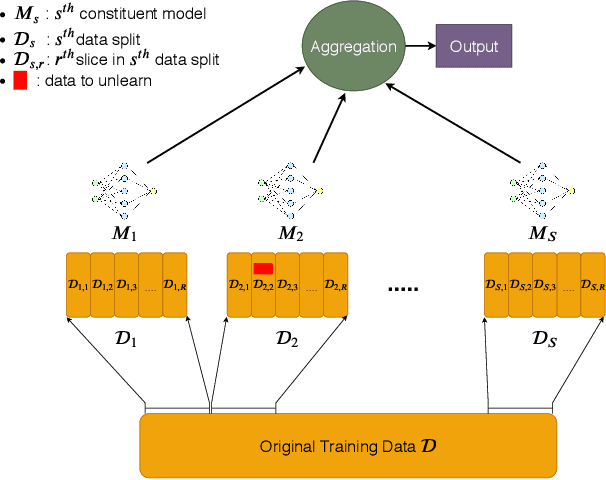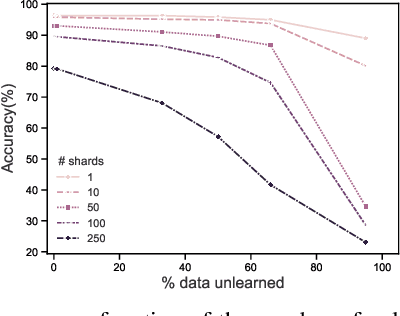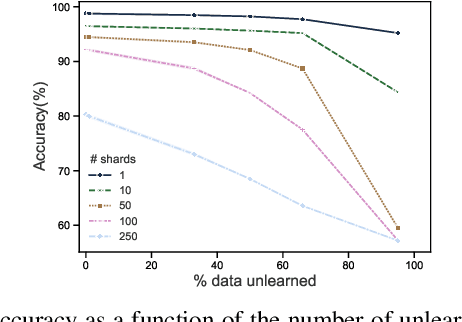Christopher Choquette-Choo
Students Parrot Their Teachers: Membership Inference on Model Distillation
Mar 06, 2023Abstract:Model distillation is frequently proposed as a technique to reduce the privacy leakage of machine learning. These empirical privacy defenses rely on the intuition that distilled ``student'' models protect the privacy of training data, as they only interact with this data indirectly through a ``teacher'' model. In this work, we design membership inference attacks to systematically study the privacy provided by knowledge distillation to both the teacher and student training sets. Our new attacks show that distillation alone provides only limited privacy across a number of domains. We explain the success of our attacks on distillation by showing that membership inference attacks on a private dataset can succeed even if the target model is *never* queried on any actual training points, but only on inputs whose predictions are highly influenced by training data. Finally, we show that our attacks are strongest when student and teacher sets are similar, or when the attacker can poison the teacher set.
Machine Unlearning
Dec 09, 2019



Abstract:Once users have shared their data online, it is generally difficult for them to revoke access and ask for the data to be deleted. Machine learning (ML) exacerbates this problem because any model trained with said data may have memorized it, putting users at risk of a successful privacy attack exposing their information. Yet, having models unlearn is notoriously difficult. After a data point is removed from a training set, one often resorts to entirely retraining downstream models from scratch. We introduce SISA training, a framework that decreases the number of model parameters affected by an unlearning request and caches intermediate outputs of the training algorithm to limit the number of model updates that need to be computed to have these parameters unlearn. This framework reduces the computational overhead associated with unlearning, even in the worst-case setting where unlearning requests are made uniformly across the training set. In some cases, we may have a prior on the distribution of unlearning requests that will be issued by users. We may take this prior into account to partition and order data accordingly and further decrease overhead from unlearning. Our evaluation spans two datasets from different application domains, with corresponding motivations for unlearning. Under no distributional assumptions, we observe that SISA training improves unlearning for the Purchase dataset by 3.13x, and 1.658x for the SVHN dataset, over retraining from scratch. We also validate how knowledge of the unlearning distribution provides further improvements in retraining time by simulating a scenario where we model unlearning requests that come from users of a commercial product that is available in countries with varying sensitivity to privacy. Our work contributes to practical data governance in machine learning.
 Add to Chrome
Add to Chrome Add to Firefox
Add to Firefox Add to Edge
Add to Edge